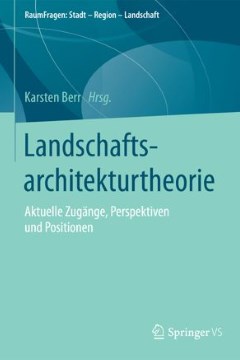Repository | Book | Chapter

(2018) Landschaftsarchitekturtheorie, Dordrecht, Springer.
This essay is about Topology in landscape architecture. Topology comprises a theoretical framework, a method and tools to reintroduce the capacities and methods of landscape architecture into the current theoretical discourse and actual shaping of our environments. Landscape architecture is understood as an integrative discipline with a deeply rooted tradition in shaping and preserving nature. The goal of establishing a «topological thinking» is to merge ecological concerns and a design approach that considers the basic factors of modeling a site: the understanding of both the terrain and the history of a place, its spatial qualities, the condition of its soil, the proper use of plants and building materials, and the adjustment to the expectations of its users while challenging aesthetic sensitivities. It presents some examples of the successful work of topologists from Peter Josef Lenné to Kathryn Gustafson and discusses current challenges of landscape design practices in Europe.
Publication details
DOI: 10.1007/978-3-658-18838-2_11
Full citation:
Freytag, A. (2018)., Topology and phenomenology in landscape architecture, in K. Berr (ed.), Landschaftsarchitekturtheorie, Dordrecht, Springer, pp. 195-225.
This document is unfortunately not available for download at the moment.



